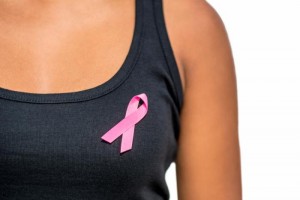Breast cancer is the most common form of cancer, affecting women worldwide. Although the survival rate is very high when the disease is discovered early, new research suggests that having a large social network might also affect a person’s chances of survival.
Having more social ties may lead to higher survival rates, new study finds. Breast cancer affects hundreds of thousands of women around the world each year. In the United States alone 246,660 women are estimated to receive a breast cancer diagnosis every year. That is 1 in every 8 women.
Around 40,000 American women die of breast cancer every year. However, breast cancer survival rates look encouraging, especially if the disease is detected early. Since 1990, breast cancer survival rates have been increasing. Due to better screening practices, increased public awareness and early detection, and improved technology and treatments, mortality in women aged 50 and older has been declining significantly for the past 2 decades.
New research suggests that social connections may also play a role in predicting survival rates among breast cancer patients Examining the link between loneliness and breast cancer. Recent studies have shown that loneliness and lack of social connections increase the risk of premature death. In fact, some studies have suggested that social isolation and living alone increase the risk of mortality by as much as 29 and 32 percent, respectively.
Researchers led by Dr. Candyce Kroenke, of the Kaiser Permanente Division of Research in Oakland, CA, set out to examine the link between social isolation and breast cancer survival rates.
Dr. Kroenke and team investigated the medical records of 9,267 women with breast cancer. The median follow-up period was 10.6 years, during which 1,448 cancer recurrences and 1,521 deaths were recorded. Of the 1,521 deaths, 990 were from breast cancer. Scientists wanted to see how the patients’ survival is affected by their social networks within 2 years from the diagnosis. The research findings were published in the journal Cancer.
Isolated women 60 percent more likely to die from breast cancer The results indicate that having an extended social network significantly increases the survival rates of breast cancer survivors. Socially isolated women had a 40 percent higher risk of recurrence and a 60 percent higher risk of dying from breast cancer than socially integrated women
Additionally, women living in isolation had a 70 percent higher risk of dying from any cause, compared with their socially integrated counterparts. However, not all social ties are equally beneficial to everyone. Some types of social relationships held different results, depending on age, race/ethnicity, and country of origin. For instance, non-white women who had strong ties with their family and relatives were less likely to die from breast cancer, whereas older white women were less likely to die from breast cancer if they had a spouse.
Older white and Asian women were more likely to have a lower recurrence and mortality rate if they had strong community ties.
Overall, the correlations proved to be stronger in patients with stages 1 and 2 breast cancer. Dr. Kroenke explains the contribution of the study, noting that it sheds light on specific breast cancer outcomes. “It is well established that larger social networks predict lower overall mortality in healthy populations and in breast cancer patients, but associations with breast cancer-specific outcomes like recurrence and breast cancer mortality have been mixed,” says Dr. Kroenke.


